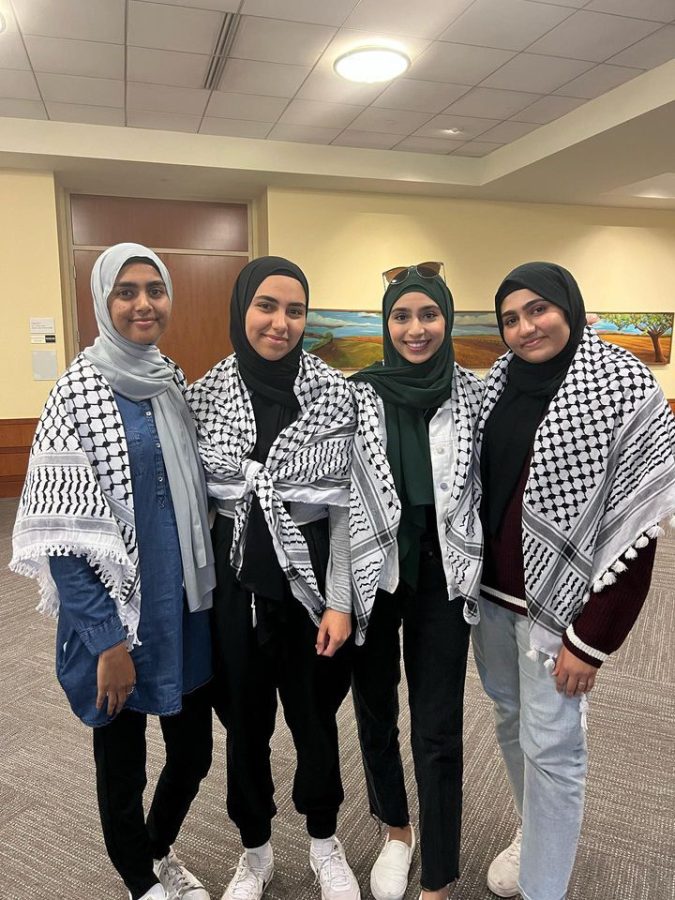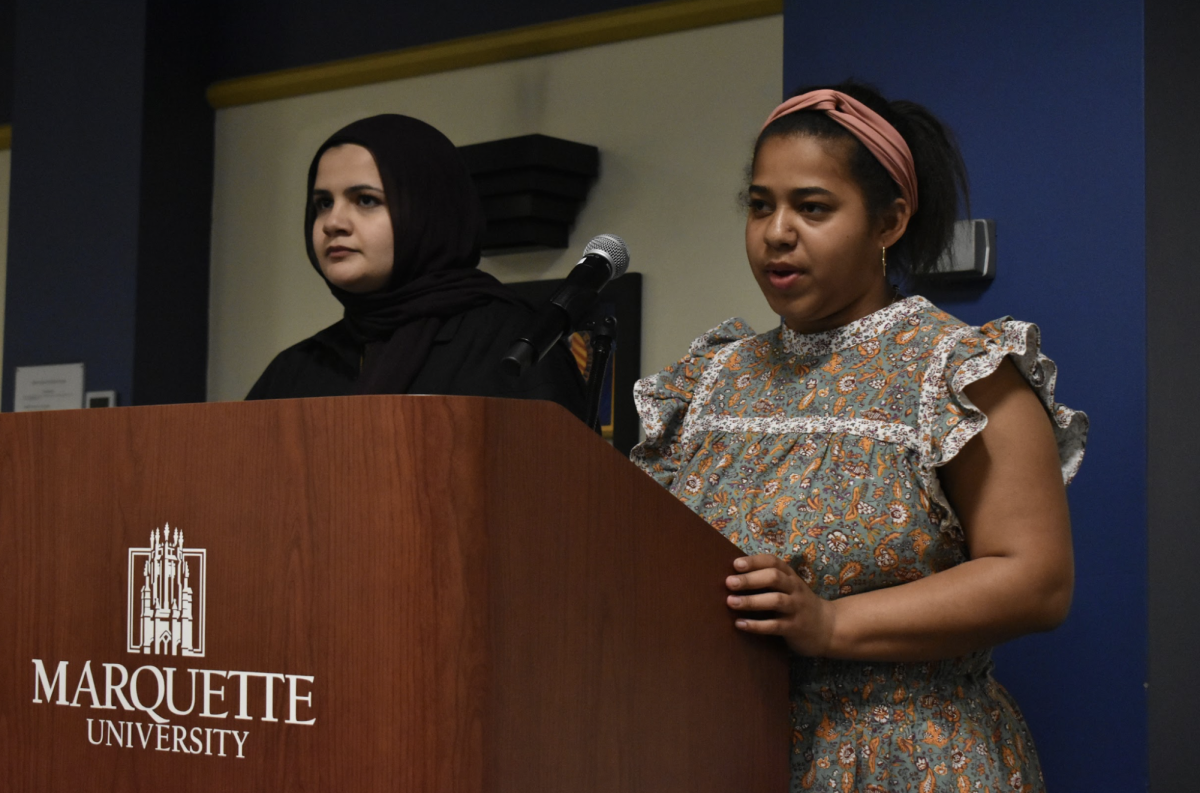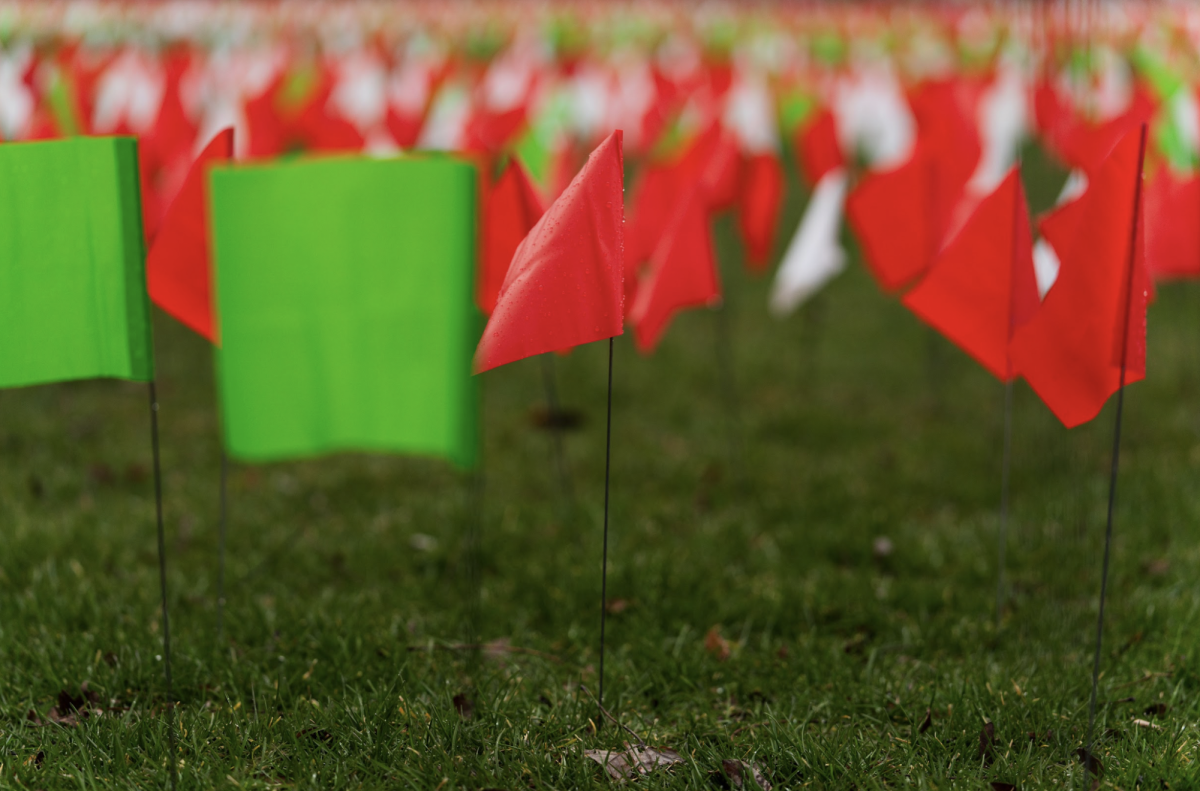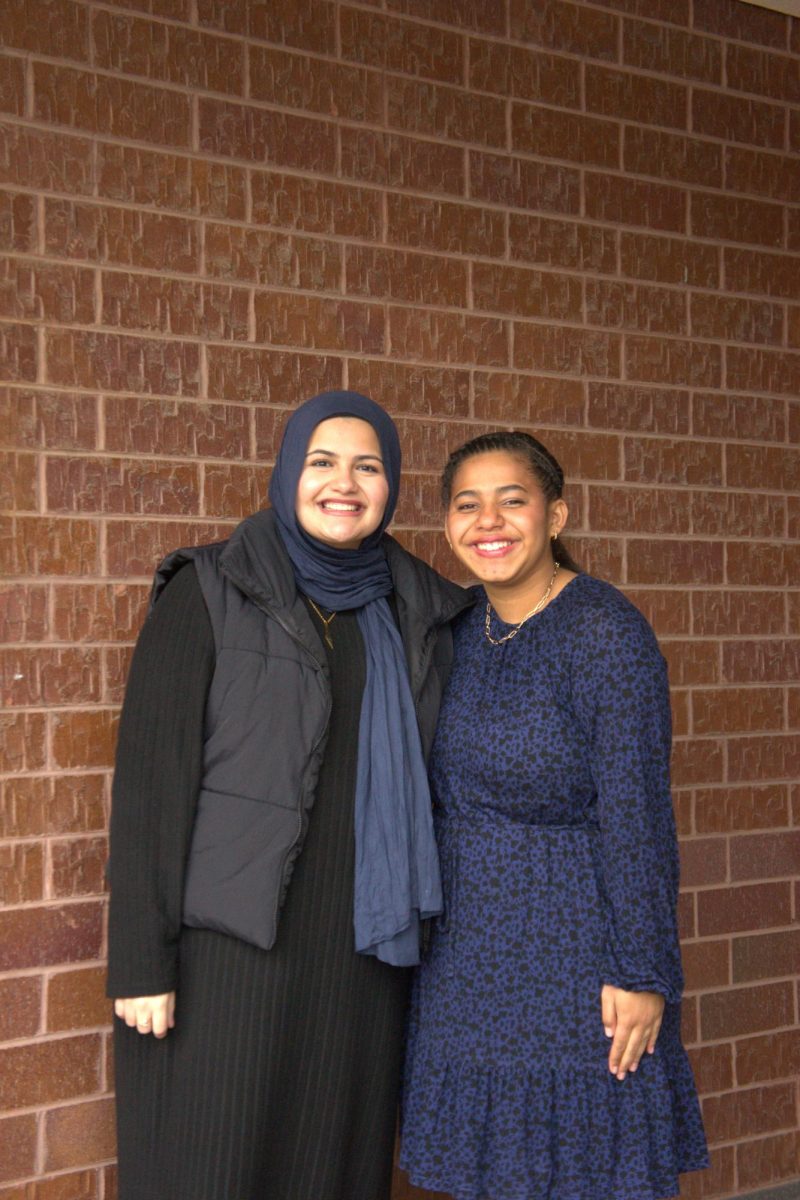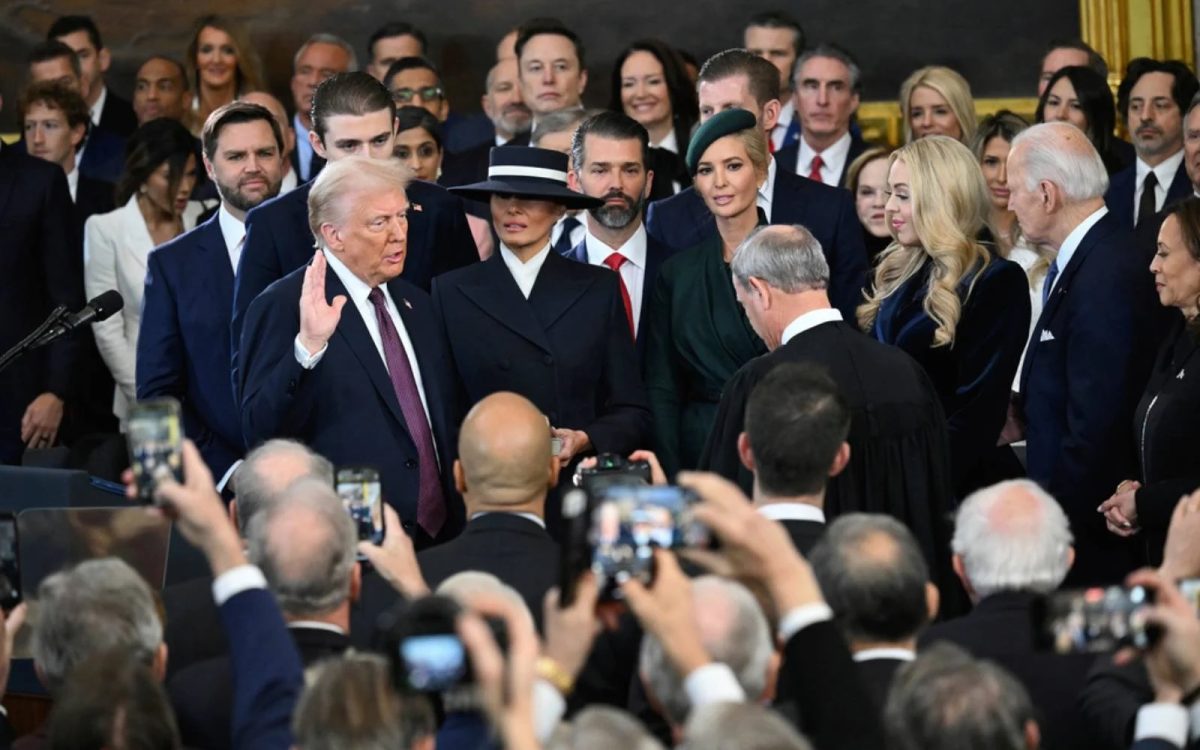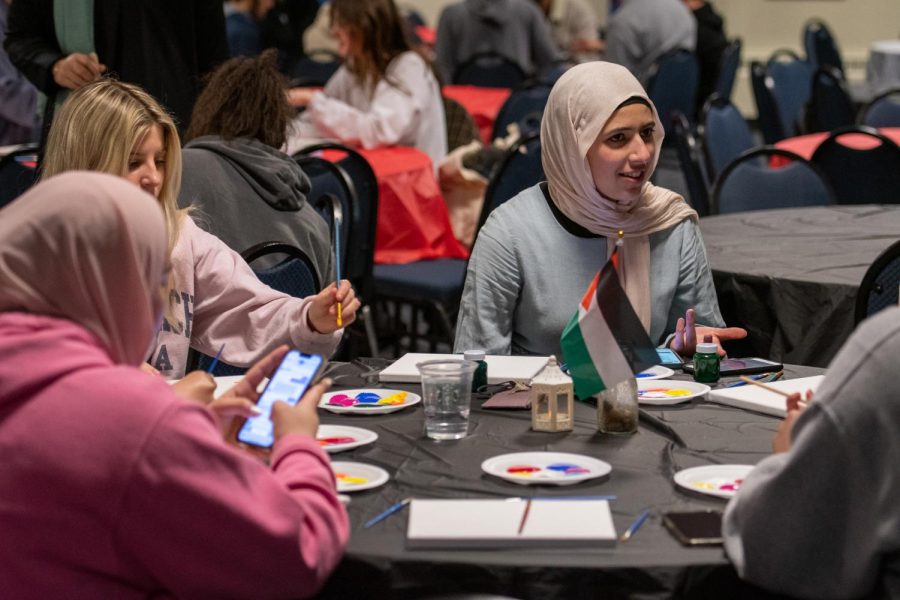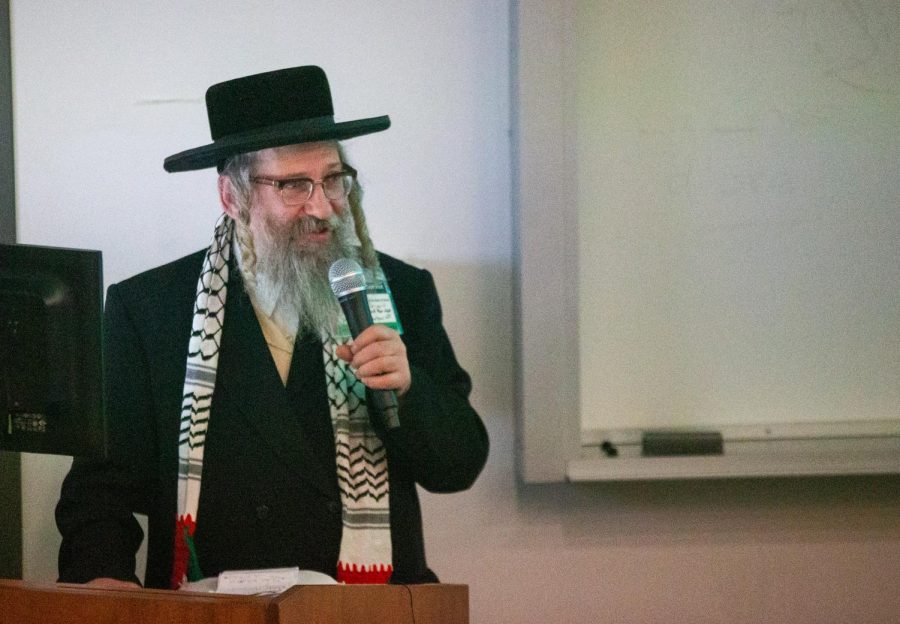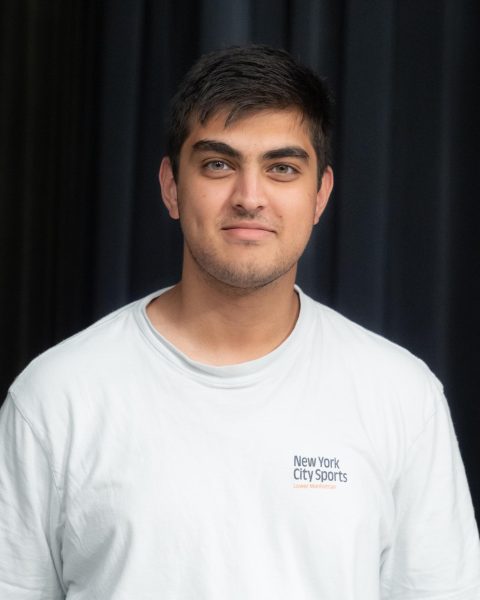Some members of the Students for Justice in Palestine group wear a kuffiyeh on campus as a symbol of Palestinian nationalism and a way of showing solidarity with the Palestinian cause every Thursday.
The kuffiyeh, primarily made with cotton and has a distinctive pattern of interwoven stripes of black and white, is a major symbol of the Palestinian identity that dates back to the 20th century.
“This kuffiyeh stands for my love of my Palestinian ancestry and my determination to defend it. It represents to me the struggle against the occupation of my country,” Amani Dalieh, a sophomore in the College of Arts & Sciences and vice president of SJP, said.
Dalieh said this is the start of bringing awareness to the issue because she can educate others on the topic and spread attention across campus.
“My friends and I enjoy wearing the kuffiyeh every week, and it feels like I carry a piece of my identity every week. I want to highlight the work of those who fought for Palestine and those who continue to fight today,” Qatada Banifadel, a sophomore in the College of Health Sciences and events manager for SJP, said.
The Palestinian-Israeli conflict has been occurring since 1948, a dispute between Palestine and Israel. Both nations hold historical and religious ties to the region. There have been attempts to resolve the conflict, but no lasting peace agreement has occurred.
Banifadel said that the designs on the kuffiyeh represent the different parts of the Palestinian struggle.
There are three portions to a kuffiyeh. The fishnet portion represents the relationship between the fishermen and the sea, which Palestinians do not have access to because of restricted movement. The waves represent the strength of the Palestinian people living under the occupation for over seventy years. The bold parts represent the trade routes through Palestine and the critical role they play in the history and cultural diversity of Palestine.
“Though I may not be Palestinian, I support the Palestinian cause in the ways that I can, and that starts with things such as the kuffiyeh. With everything I see about what happens in Palestine, I feel it is important to at least bring some awareness to the issues present on campus,” Luqman Waheeduddin, a junior in the College of Arts & Sciences, said.
Waheeduddin said that, as young people, we should know what is happening around the globe. Through this weekly initiative, he can indirectly present the message to others.
Dalieh and Banifadel both said that they have not received any negative feedback on wearing the kufffiyeh. Instead, they welcome questions about what they are wearing and how they can join in supporting the cause.
Dalieh said that she and the members of SJP will continue to show support for the Palestinian cause through events such as “Paint Night,” which highlighted the lives of those lost in a recent raid in Palestine that killed 11 individuals and left over 100 injured.
“During a month like Ramadan, when there is so much going on and the oppression is growing against Palestinians, it is crucial to highlight the Palestinian cause. Without their efforts to stand up for justice, there would be no Palestine,” Banifadel said.
Palestine is a key site in Islamic history and tradition. The nation is the site of the Al-Aqsa Mosque where thousands of Muslims come daily to worship during the month of Ramadan. Due to this so the Palestinian struggle is seen by some Muslims around the globe as not only a moral cause, but rather a religious obligation.
Dalieh said funding is one of the major challenges SJP has faced when working to continue these events and highlight the Palestinian cause. She said that she hopes Marquette can increase event funding and continue working to support the cause.
“It has been hard to continue planning events and bring awareness with limited funding, so we are doing our best with the smallest ways to at least get the word out,” Waheeduddin said.
Dalieh said that through initiatives like the kuffiyeh Thursday, they can help other groups and clubs across campus get the word out about their message. She said this can allow for education on cultures and different perspectives.
“I want to continue collaborating with student organizations and academic departments, whether that be with small events and initiatives. We have things such as social media to promote event and engage with others. Through inclusivity across campus, we can continue to persist and celebrate the successes, however large they are, as they come,” Dalieh said.
Banifadel said that he hopes to continue expanding SJP over the years and allow for more initiatives similar to kuffiyeh Thursday to spread the message about Palestine. He noted that students such as him will continue to spread the message to others about the ongoing conflict in Palestine.
“We will continue to work towards the freedom of Palestine and provide justice for the Palestinian people. Their rights must be respected, and the voices must continue to be heard. For us, the kuffiyeh is our commitment to the cause and the weekly practice is just a start. We stand in solidarity with Palestine, and we will not stop until they are free,” Banifadel said.
This story was written by Uzair Qhavi. He can be reached at uzair.qhavi@marquette.edu.


